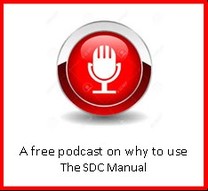What is Self-Directed Care?
Self-Directed Care (SDC) is a new way of providing mental health services in which adults with psychiatric disabilities directly control the funds spent on their recovery. They create a person-centered recovery plan and a budget for the purchase of goods and services to achieve their life goals. Program staff help them hire providers and make purchases that lead to recovery.
|
What is the purpose? |
SDC has a strong evidence base in the disability, aging, and social service fields, with emerging evidence in the mental health field. This manual helps people understand mental health self-directed care, and provides practical information and resources for promoting, developing, and operating an SDC program. The manual also serves to stimulate thinking about the various ways that SDC can be implemented to foster self-determination and recovery for people with mental illnesses.
|
Who can use it? |
This manual targets a general audience of people interested in mental health self-directed care. We intend it for people living with mental illness, family members, community members, SDC program staff, researchers, faculty, students, advocates, and other stakeholders who want to start an SDC program in their area. The manual also is intended to reach mental health service providers, funders, and policymakers.
|
What is the format? |
The Self-Directed Care Implementation Manual (160 pages) offers a step-by-step guide to introducing self-directed care in local community settings.
Chapters address the following implementation topics:
Each chapter includes practical implementation information, real-life examples of how mental health SDC was introduced in several different states, and links for additional resources. Also included is an appendix with sample SDC policies and program forms. |
Why SDC? |
SDC offers people more choices, greater control, and enhanced personal responsibility for their care and support services. It can increase options for individual recovery pathways, improve quality of life, and control costs for the funder.
In SDC programs, participants have the “power of the purse” as purchasers of their own services. SDC is a concrete example of putting recovery values into action. Through SDC programs, people in recovery are able to select specific services, supports, and other resources that meet their individual needs and preferences. Their options are expanded by creating opportunities beyond what is available from traditional mental health service providers. Satisfaction is higher because if a participant is not satisfied, he or she can change vendors. The burden is on the vendor to ensure service quality and customer satisfaction. The Substance Abuse and Mental Health Services Administration (SAMHSA) reports that SDC can facilitate personal responsibility, create an economic interest in obtaining and sustaining recovery, and promote learning, self-monitoring, and accountability. Most importantly, choice and control can lead to recovery and improved quality of life. |
|
Podcast length: 6 minutes
|
A free webinar on the SDC Implementation Manual (43 minutes)
|


